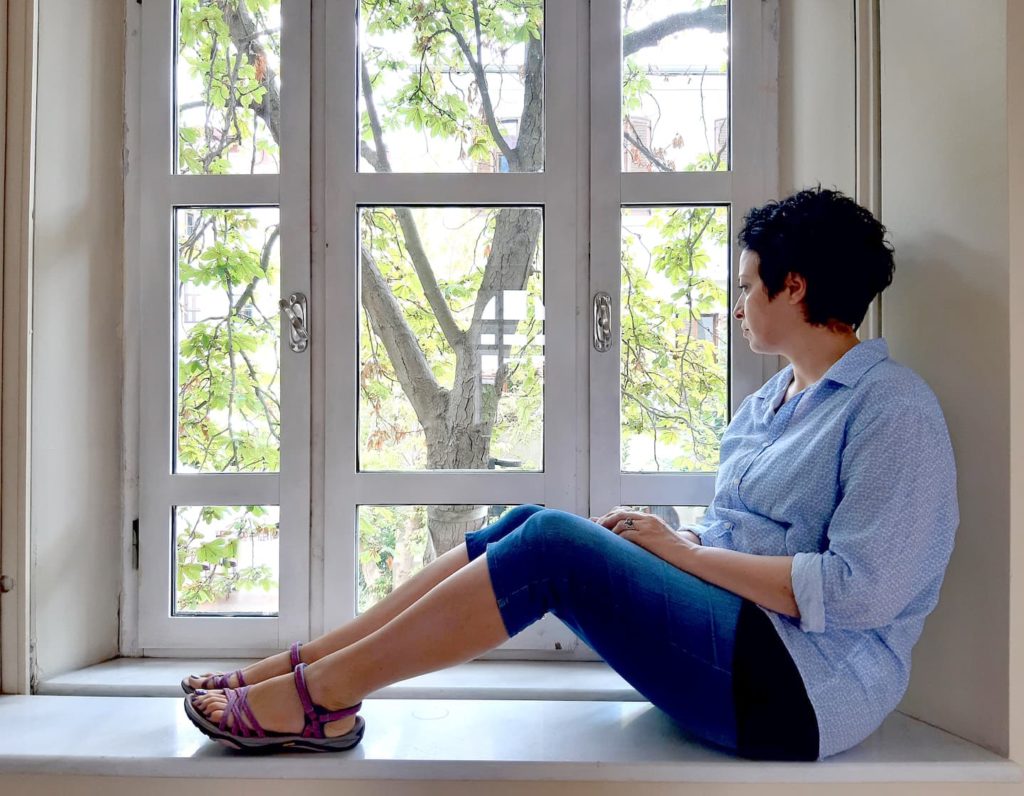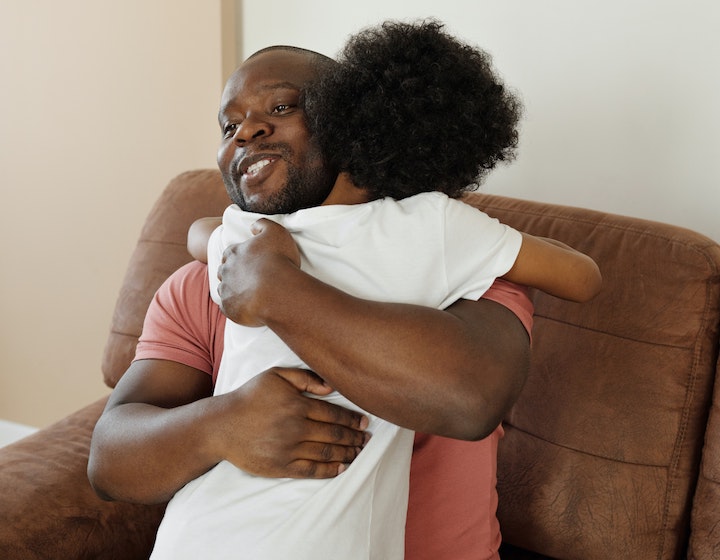
 Post Category - Health & WellnessHealth & Wellness - Post Category - WellnessWellness
Post Category - Health & WellnessHealth & Wellness - Post Category - WellnessWellnessA Hong Kong mama shares her findings of how and where to get help.
A recent visit to the doctor revealed something unexpected. Under the bright glare of the examination table, the women’s health specialist checking me asked if I was stressed. Even as I tried to brush it off, she responded matter-of-factly, “You may think you aren’t anxious, but your pelvic floor tells me otherwise. You need to release the tension.” I couldn’t figure out if she was referring to my nether regions, or euphemistically, to the state of my mental health. Or perhaps both?
They say the body is a truth-teller, and my pelvic floor has clearly tattled on me. Sure, these past few months have been difficult to navigate, but who hasn’t struggled and put on a brave face during the pandemic season? I had perfected the art of silently screaming in my head and suppressing my frustrations. But apparently not well enough. The doctor’s visit left me ruminating on how we need to care for our mental health as urgently as we do our physical health. In fact, the World Health Organisation simply and categorically states: “There is no health without mental health” in the summary of their seminal mental health report.
Read more: 11 Health And Wellness Apps For Busy Hong Kong Mums
Mental Health Issues In Hong Kong This Year

Tomorrow is 10 October, World Mental Health Day and it’s a good time to highlight the dramatic increase in mental health issues in Hong Kong. Given the agitating nature of 2020, it is no surprise we are collectively more anxious. A recent survey by HKU found that – between February and July 2020 – over 70% of people surveyed showed moderate-to-high levels of depressive symptoms, and over 40% displayed post-traumatic-stress disorder symptoms, such as intrusive memories and persistent feelings of fear, anger, and guilt, as a result of last year’s social unrest and the ongoing COVID-19 pandemic.
Despite the urgent statistics just highlighted, the public conversation about mental illness remains muted due to fear of discrimination or judgment by friends and colleagues. “Discussion of mental health issues has a tendency to be stigmatising. Practitioners have made progress in normalising how we discuss these issues, but there is a lot more that needs to be done on an individual level, and a systemic level,” remarks Dr Kaili Chen, a clinical psychologist with Central Minds.
Read more: Adapting To Change By Setting Goals In Your Life

Mental Health Resources And Professional Support In Hong Kong
I suggest we were always more mentally unstable than we assumed. Pre-pandemic, we had readily available coping mechanisms for negative emotions, but it became more difficult when our coping freedoms were taken away. “Let’s get a drink to blow off some steam”; oh wait, bars are closed. “Just let me get to Friday and I’ll have dinner with the crew”; oh wait, restaurant seatings are restricted. “Can’t wait to smash it at the gym”; thankfully opened now, but there is the fear of the fourth wave and further restrictions always in the air.
Instead of plastering over our symptoms and allowing a negative issue to fester, perhaps now is the time to seek professional care. The first step is to check out Mind HK, a registered charity, whose website provides a trove of resources and support for those experiencing mental health problems. Carol Liang, Mind HK’s Communications Manager, notes a sudden increase of interest in their website. In July 2020, the website reached a high of 54,000 new users, double the number of users in January 2020 – a direct correlation to recent challenging circumstances. Liang notes, “COVID-19 forced a much-needed spike in conversations around mental health. The pandemic has been a unifying difficult experience, not only in Hong Kong but globally. It is now more acceptable to discuss your mental wellbeing and how you are feeling, especially when it comes to people’s frustrations.”
Mind HK also launched a number of invaluable programmes for the Hong Kong community. There are both fee-based and pro bono offerings, in both English and Cantonese.
- Help Me is a virtual assistant to help you easily navigate mental health services and information.
- COVID mental health relief scheme offers pro bono mental health support sessions administered by a group of volunteer professionals in Hong Kong. These are one-to-one and confidential (the number of meetings is limited and the service is available for those most in need).
- A Community Directory of 80+ local organisations offering low-cost/pro bono support
- Coolminds a specific youth-targeted initiative to address mental health, in collaboration with KELY Support Group.
- Mental Health First Aid Training Course for those interested to learn how to help others in need.
Aside from Mind HK, there are many places you can turn to for help with your mental health. You can reach out to The Samaritans, a 24-hour multi-lingual support hotline in Hong Kong. If you are younger-aged, visit Breakthrough or KELY Support Group (we particularly like This Is Hong Kong Life, a podcast that highlights stories and conversations from the youth of the city from different backgrounds). If you are more comfortable with Cantonese, visit Baptist Oi Kwan. Another option for pro bono services is Care4All.
Read more: Stay-At-Home Survival Guide: Lessons From A Sassy Mama

Not All Wounds Are Visible
It’s odd, isn’t it – we are so reticent when it comes to our mental ailments, but so willing to share about our physical disorders. Is it because physical maladies give us a platform to humblebrag? “I’ve got bad knees training for the marathon”, or “I get migraines because work is so stressful.” In some cases, physical conditions and illnesses can be attributed to factors beyond our control and therefore, often get more sympathy and understanding. In fact, I noticed physical disorders are usually worded as an external condition (“I got arthritis” or “I caught a cold”), whereas mental ailments are worded as a state of being (“I am depressed” or “I am suicidal”). Given mental health problems are largely invisible, we may appear unreasonably weak and helpless or dismissed as hypochondriacs.
But how do you differentiate between a healthy amount of anxiety, and what is deemed excessive and abnormal? My well-meaning but completely amateur advice is to notice when your internal emotions begin to externally manifest. Such signs could include restlessness, insomnia, heart palpitations, unexplained sweating, dizziness, and shortness of breath. These are common expressions of internal turmoil: a drowning, helpless feeling which is resistant to reassurance.
If you notice these symptoms in yourself or your loved ones, take them seriously. Especially when it comes to younger, more impressionable children. There should be frequent and frank communication about mental health signals to help them understand that negative feelings are not something to be ashamed or embarrassed about.
Read more: 13 Children’s Books To Help Kids And Teens Deal With Anxiety And Stress

Positive Education
“In order for our young people to develop and flourish, they need to feel heard and to have safe places to express themselves, and to adults,” shares Sky Siu, Executive Director of KELY Support Group, an NGO that works with underprivileged Hong Kong youth. “We encourage building trust early on while emphasising communication must include intentional listening.”
Educators are highly cognizant of the need to educate students about mental health issues from a young age. For the last few years, “Visible Wellbeing” has been a core part of the curriculum at my children’s school. Students are taught deep-breathing techniques, encouraged to voice the gamut of their emotions, and squeeze a stress ball as hard as they need to. The programme has been successful: terms hitherto unknown to my 6-year-old are now part of his common lexicon. “S… S… Self… Self-Regulation!” He pronounces proudly, but incorrectly, whilst reading The Magic Tree House. The word was “selfish.”
Read more: Raising Resilient Hong Kong Kids By Teaching Them Happiness

Earlier this year I felt myself spiralling into a murky hole, and when I found out my health insurance would reimburse a few therapy sessions, I looked for someone to speak with. I chanced upon a therapist who had multiple ear piercings highlighting her utter coolness. We hit it off immediately. She is kind and profound without being patronising. She is also brave: none of my skeletons spooked her one bit. While I was rapidly unspooling, she gently showed me how the darker coloured yarns added dimension and depth to the tapestry of my life. Being able to share my story with her put me firmly on the path to mental recovery. My only regret is not having met her earlier. Be brave. If you need to seek help, do so.
Read more: Sassy Mama’s Roundup Of Couples And Family Counsellors In Hong Kong
 View All
View All











 View All
View All





 View All
View All


 View All
View All














